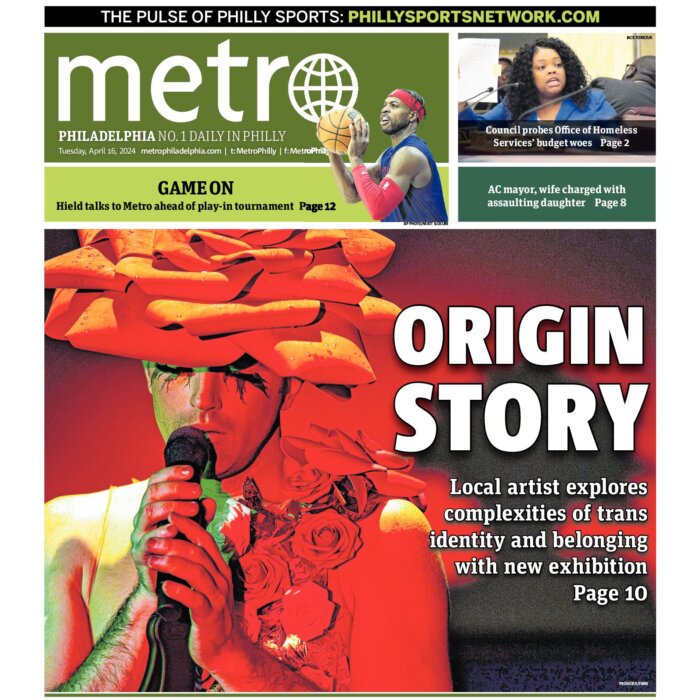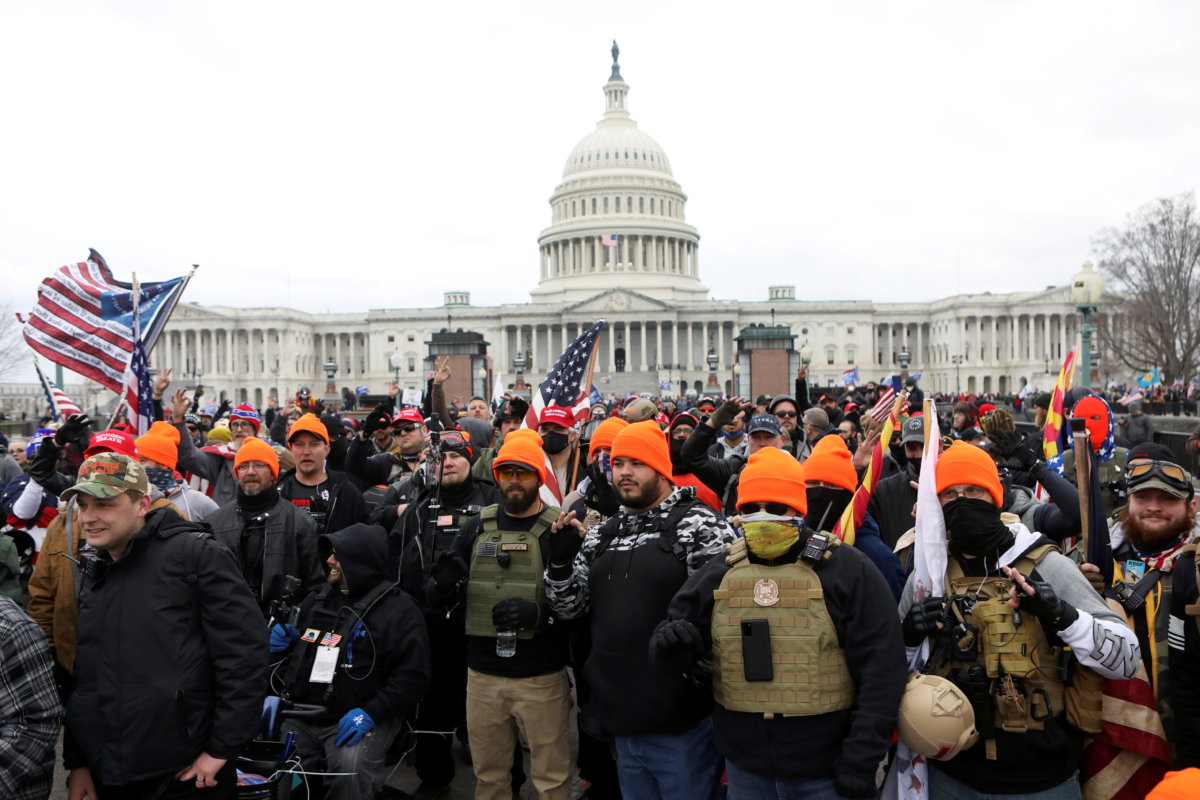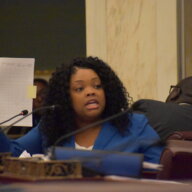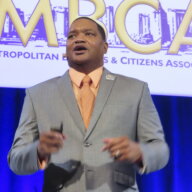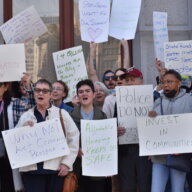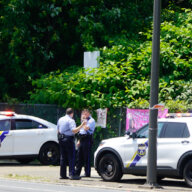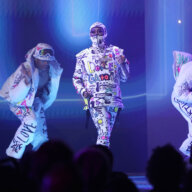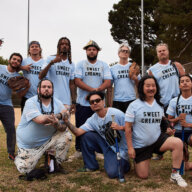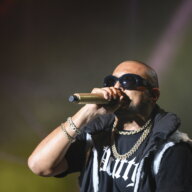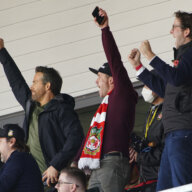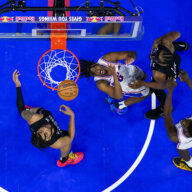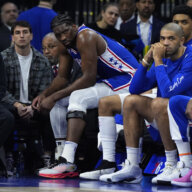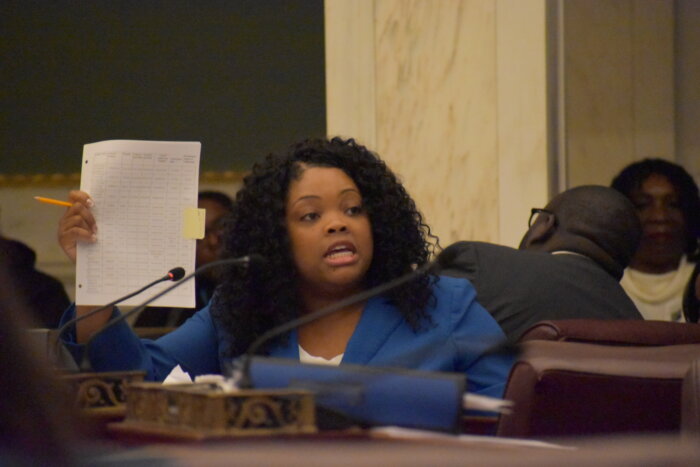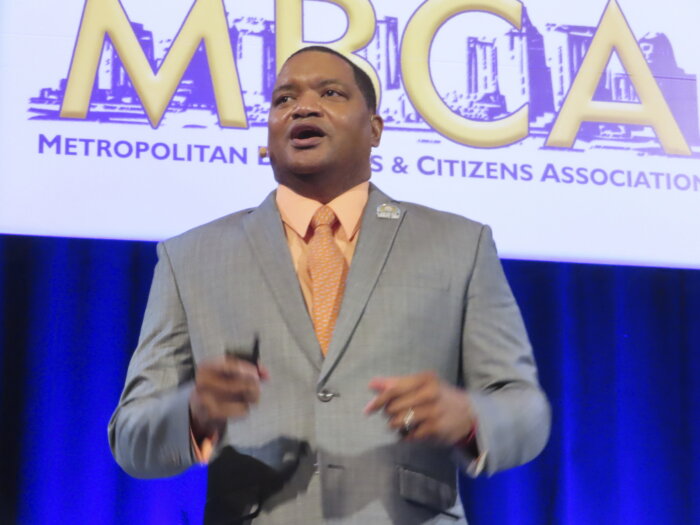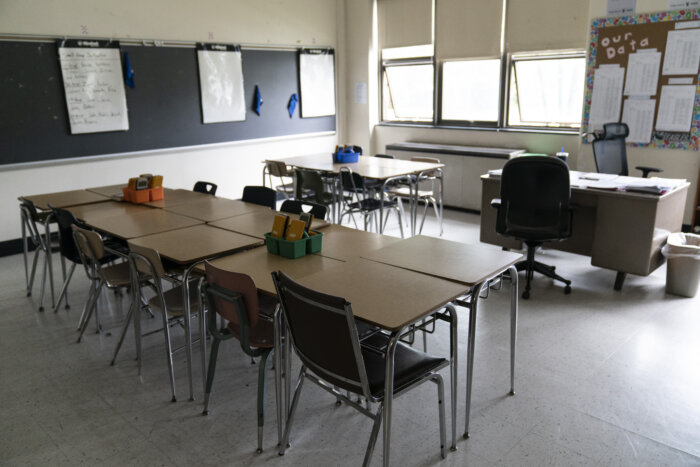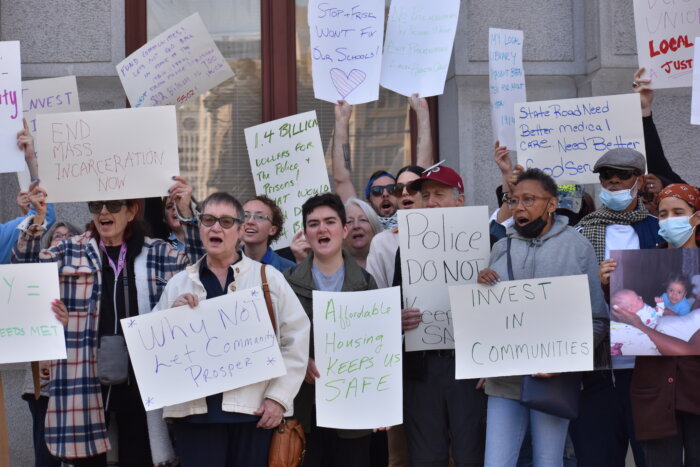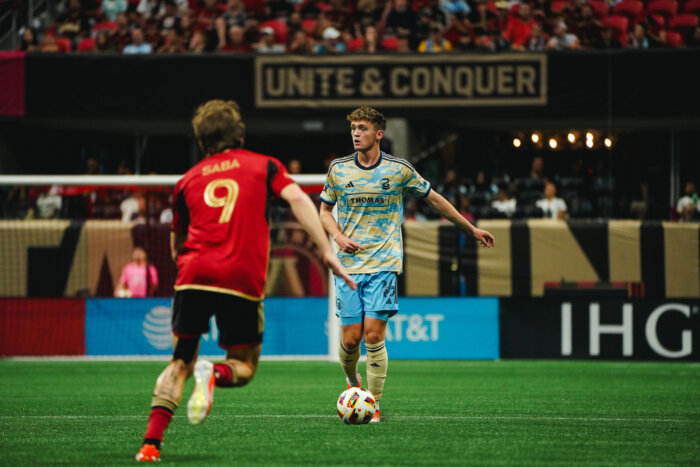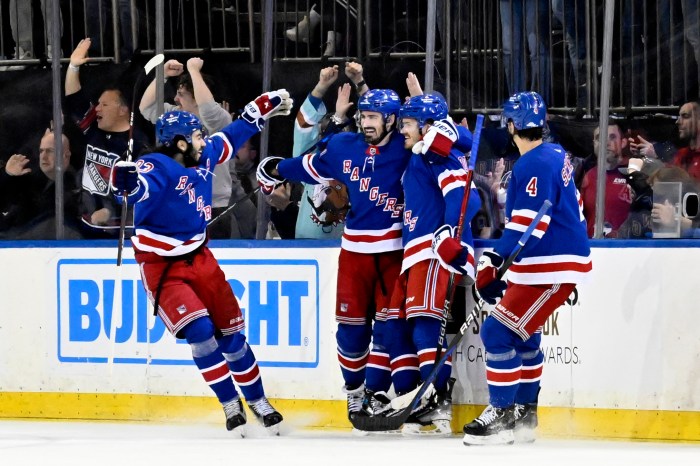By Aram Roston
Among the far-right groups whose members are suspected of planning the Jan. 6 attack on the U.S. Capitol are the Proud Boys. In March, the Federal Bureau of Investigation’s director told the Senate Judiciary Committee that he “absolutely” wished the agency had penetrated the group beforehand, or knew its plans.
“I do not consider what happened on January 6th to be an acceptable result,” Director Christopher Wray said. “We are focused very, very hard on how can we get better sources, better information, better analysis.”
The FBI had deeper insight into the group than Wray disclosed, however.
Bureau agents maintained connections with key Proud Boys leaders starting as early as 2019, a Reuters examination has found. At least four Proud Boys have provided information to the FBI, Reuters learned. Often these leaders were sharing intelligence about Antifa, a loose movement of left-wing activists opposed by former President Donald Trump and right-wing media.
The connections between the Proud Boys and the FBI do not mean the agency had thoroughly penetrated the far-right group. But some law enforcement veterans say the ties show the agency could have done more to prepare for the deadly Jan. 6 uprising, which sought to overturn the election of Democrat Joe Biden as president.
“This was a group committing violence in public and promoting themselves as a violent group,” said Mike German, a former FBI agent who investigated domestic terrorism. German previously has criticized the bureau over what he says was a failure to focus on the Proud Boys ahead of Jan. 6. Told of the findings of this story, German said: “It’s hard to understand how the FBI could have had a relationship with four individuals in the Proud Boys and didn’t understand the nature of the threat to the Capitol.”
The FBI declined to answer written questions for this story or to comment on the four Proud Boy connections detailed here. An FBI official said Wray’s Senate testimony reinforced “the need to detect and deter acts of violence.”
Reuters interviewed two Proud Boys members who spoke on the condition of anonymity about some members’ interactions with the FBI. Reuters also interviewed Proud Boys leader Enrique Tarrio, examined court records and interviewed sources close to the federal investigation.
The reporting showed:
• One Proud Boy left the group in December after telling other members he was cooperating with the FBI by providing information about Antifa, say Tarrio and two other Proud Boy sources. The former member, whom Reuters was unable to identify, insisted to group leaders that he had not revealed information about the Proud Boys, these people say.
• A second Proud Boy leader bragged in 2019 about sharing information with the FBI about Antifa, according to private chats leaked on social media. The chats’ authenticity was confirmed by a source familiar with the Proud Boys and the Jan. 6 case, as well as by the Proud Boy leader’s lawyer.
• A third Proud Boy leader, Joseph Biggs, who was indicted and charged with conspiracy in the January attack, has said in court papers he reported information to the FBI about Antifa for months. Reuters spoke to Biggs two days before the riot. In that interview, he said he had specific plans for Jan. 6, but declined to disclose them. But, he volunteered to Reuters in that call, he was willing to tell his FBI contact of his plans for the coming rally, if asked. Reuters wasn’t able to determine whether such a contact took place.
• The fourth Proud Boy, Tarrio, previously had worked as a cooperating witness, sometimes undercover, for the FBI and local authorities in South Florida two years before the far-right group was formed, as Reuters reported in January. Tarrio told Reuters he continued intermittently to talk to the FBI, though he insists he never spoke about the inner workings of the Proud Boys. Instead, he said, he provided information about Antifa and about marching plans. Tarrio also spoke to the FBI in October, he said, when the Proud Boys were briefly accused of threatening Democratic voters via email. The Department of Homeland Security later alleged that Iran had “spoofed” Proud Boys email addresses, in a strange effort to disrupt the election. Iran denied it.
Tarrio, who was arrested two days before Jan. 6 on vandalism and firearms charges, did not take part in the Capitol insurrection. He says the group had no plans for violence that day. “We were actually looking forward to just having a f**king relaxing day, watching the president speak,” he said, referring to Trump.
Still, at least 18 Proud Boys members have been arrested since the Capitol riots, on charges ranging from conspiracy to assaulting police officers. At least six others associated with or accompanying the group have also been charged. Overall, over 400 hundred people have been arrested in the broader federal case.
When Jan. 6 arrived, federal and local agencies were unprepared for the assault, in which rioters attempted to block U.S. lawmakers’ formal certification of Biden’s election and keep Trump in office. The Capitol Police were unable to hold back the onslaught, law enforcement barricades were easily overrun, and five people died.
‘MINISTRY OF SELF DEFENSE’
The Proud Boys have earned a reputation as right-wing protestors and street fighters who have clashed with leftists at rallies in Portland, New York, Washington and elsewhere. Founded in 2016, the avowedly male chauvinist organization challenges what it perceives as excessive political correctness. Its members have often embraced their reputation for violence.
Proud Boys members, including Tarrio, have said they have told the FBI of protest routes, for instance, when planning rallies. They say they do not view such disclosures as informing or cooperating, but rather as a public safety protocol.
On Dec. 12, 2020, a month before the insurrection, Proud Boys, many clad in tactical vests and body armor over their signature yellow and black shirts, were greeted with rousing applause by Trump supporters in a rally in Washington to protest the Republican’s loss to Biden.
Violence spiraled out of control. Clutches of Proud Boys prowled the streets, attacking people they claimed were aligned with Antifa. Four people were stabbed. Two of those reportedly injured were Proud Boys, by someone they clashed with on the street. Tarrio would later be accused by authorities of burning a “Black Lives Matter” banner; video showed Proud Boys squirting it with lighter fluid to make the flames grow bright in the dark.
From that chaos grew the seeds of the Proud Boys planning for Jan. 6.
After the violence of Dec. 12, the presidents of the 155 Proud Boy chapters held a vote to ban the organization from officially sponsoring such rallies. “We voted against any more rallies until further notice,” one Proud Boy leader said. The vote meant that Proud Boys could not wear their “colors” – yellow and black paraphernalia adorned with various insignia, including roosters and laurel wreaths.
The point was to rein in the bad publicity stemming from the rampant violence, and to prevent Proud Boys from getting injured.
The vote has not been previously reported. It was an important decision, members said, because it’s the reason the Proud Boys went to Washington as they did on Jan. 6: without wearing their Proud Boy gear. No colors meant the Proud Boys would not be easily identifiable by the public and law enforcement; so long as they weren’t in official garb, they could still turn out for Trump despite the ban.
To prepare for Jan. 6, Tarrio and other leaders set up a virtual “rally chapter” they called the Ministry of Self Defense, or MOSD, on a chat on the Telegram messaging platform, two Proud Boy sources say. That channel, say the sources, would become a planning tool for Jan. 6.
By the end of December, prosecutors now say, Tarrio and Biggs were publicly announcing their instructions to Proud Boys to go to Washington, DC, “incognito,” as they called it. Tarrio promised they would turn out “in record numbers.”
Before the presidential certification, in late December, a Proud Boy with the handle “Danny Mac” came forward to the group with a confession.
“He said he was an informant,” one Proud Boy said. “He said he was giving them information for two years.”
Danny Mac disclosed to the Proud Boys leadership the FBI had paid him for information about Antifa, two members told Reuters. But soon, he told the leaders, the FBI was demanding information about the Proud Boys group itself. Danny Mac said he was coming clean to the Proud Boys, and promised that he had not disclosed any secrets.
Nevertheless, according to a Dec. 19 message on Proud Boys chat rooms that was read by a member to Reuters, Danny Mac was “excommunicated” from the group. His access was deleted from any chats.
In an interview, Tarrio was cautious in discussing the former member. “He communicated with me that he was in touch with law enforcement,” Tarrio said, without elaborating. Tarrio said the member was rooted out over his “leadership style,” not his cooperation, but offered no further detail.
Reuters was unable to contact the former member known as Danny Mac.
The group deleted the Ministry of Self Defense chats after Tarrio was arrested Jan. 4 for his actions in the December rally. Tarrio faced a misdemeanor warrant for burning the Black Lives Matter flag and a felony charge for bringing two high capacity rifle magazines with him. He has not entered a plea and was released from custody after one night in jail. He is scheduled to appear in court in June.
After his arrest, a new private chat group was set up, prosecutors say. It was called “New MOSD.”
Proud Boys say that the FBI’s interest in tapping into the far-right group appeared to stem from members’ conflicts with and knowledge of Antifa – the loose collective of leftist activists who fight against forces they deem to be fascist. “F**k Antifa!” Proud Boy members chant at rallies. Some wear “Death to Antifa” t-shirts.
In January 2019, a member of the Philadelphia chapter of the Proud Boys who called himself “Aaron PB” was on a Telegram chat with fellow members to gather information about Antifa, according to leaked chat screenshots whose authenticity was confirmed by a source familiar with the Proud Boys and by a lawyer for Aaron PB. Aaron PB said in a chat that he was gathering “info we want to send our FBI contact.”
A source close to the federal investigation told Reuters that “Aaron PB” is a Philadelphia Proud Boy leader named Aaron Whallon-Wolkind.
Whallon-Wolkind did not respond to phone calls or questions sent via text. Reached by a Reuters reporter, he hung up.
Patrick Trainor, a New Jersey lawyer for Whallon-Wolkind in an unrelated lawsuit, said Whallon-Wolkind and other Philadelphia Proud Boys had talked about inconsequential matters with the FBI over the years. Those contacts did not amount to anything substantive, Trainor said. Trainor represents other Proud Boys as well.
“They’ve all been approached at different times at different rallies in the city of Philadelphia,” he said. “Plainclothes FBI guys wanted to talk to them. You know: ‘We heard this happened. This happened so let’s talk about it.’”
Trainor acknowledged Whallon-Wolkind made the comments about “our FBI contact” on the Telegram chat, but believes they were not meant to be taken seriously. “I think he was just breaking balls,” Trainor said. “I think there was no contact with the FBI.”
Trainor says the FBI has been unfairly targeting Proud Boys, whom he says are not racist but “are just a bunch of different guys drinking beers, having laughs, breaking balls, telling dirty jokes.”
Reuters
